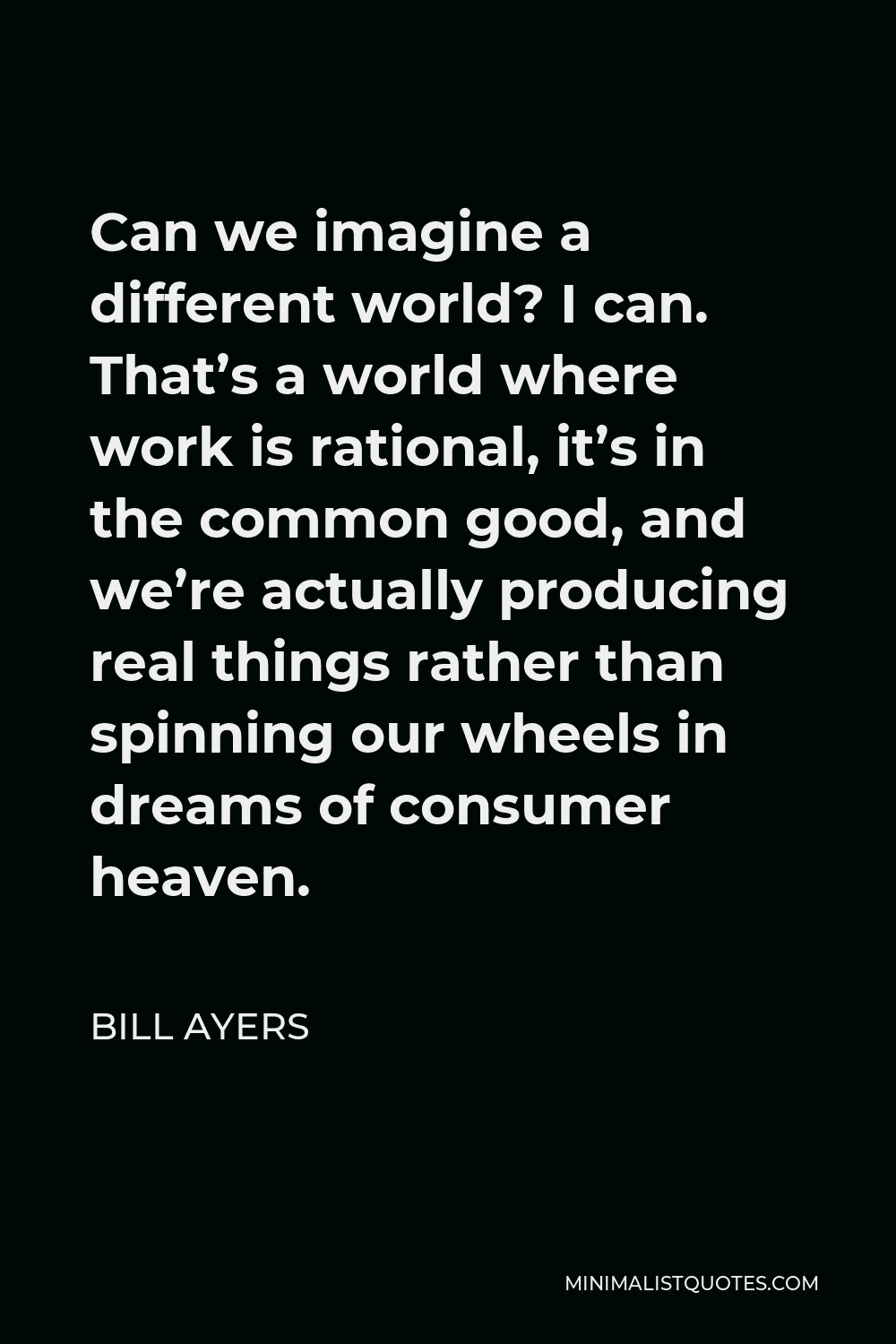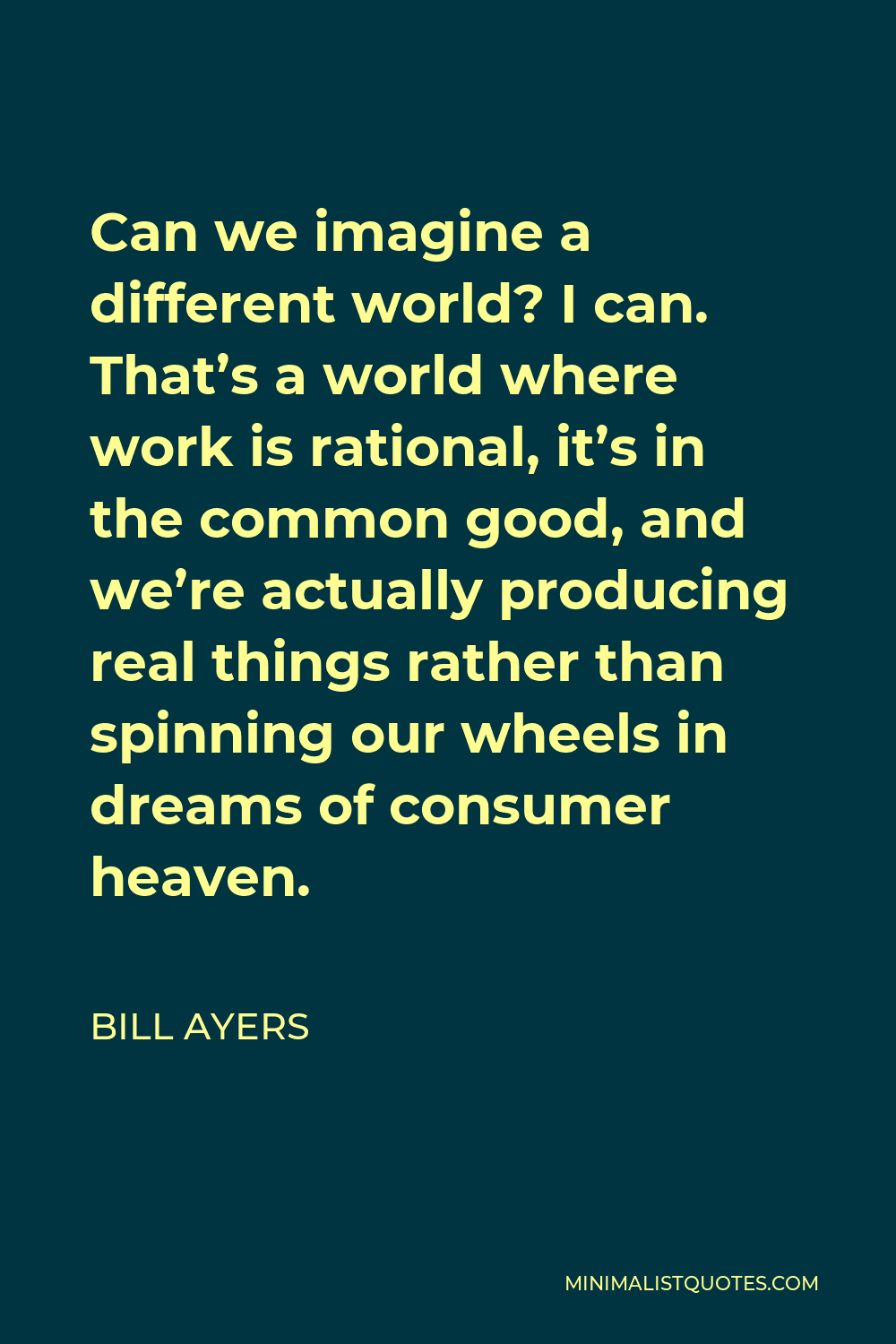Injustice anywhere is an assault on all of us. That means that we all can get busy.
BILL AYERSCan we imagine a different world? I can. That’s a world where work is rational, it’s in the common good, and we’re actually producing real things rather than spinning our wheels in dreams of consumer heaven.
More Bill Ayers Quotes
-





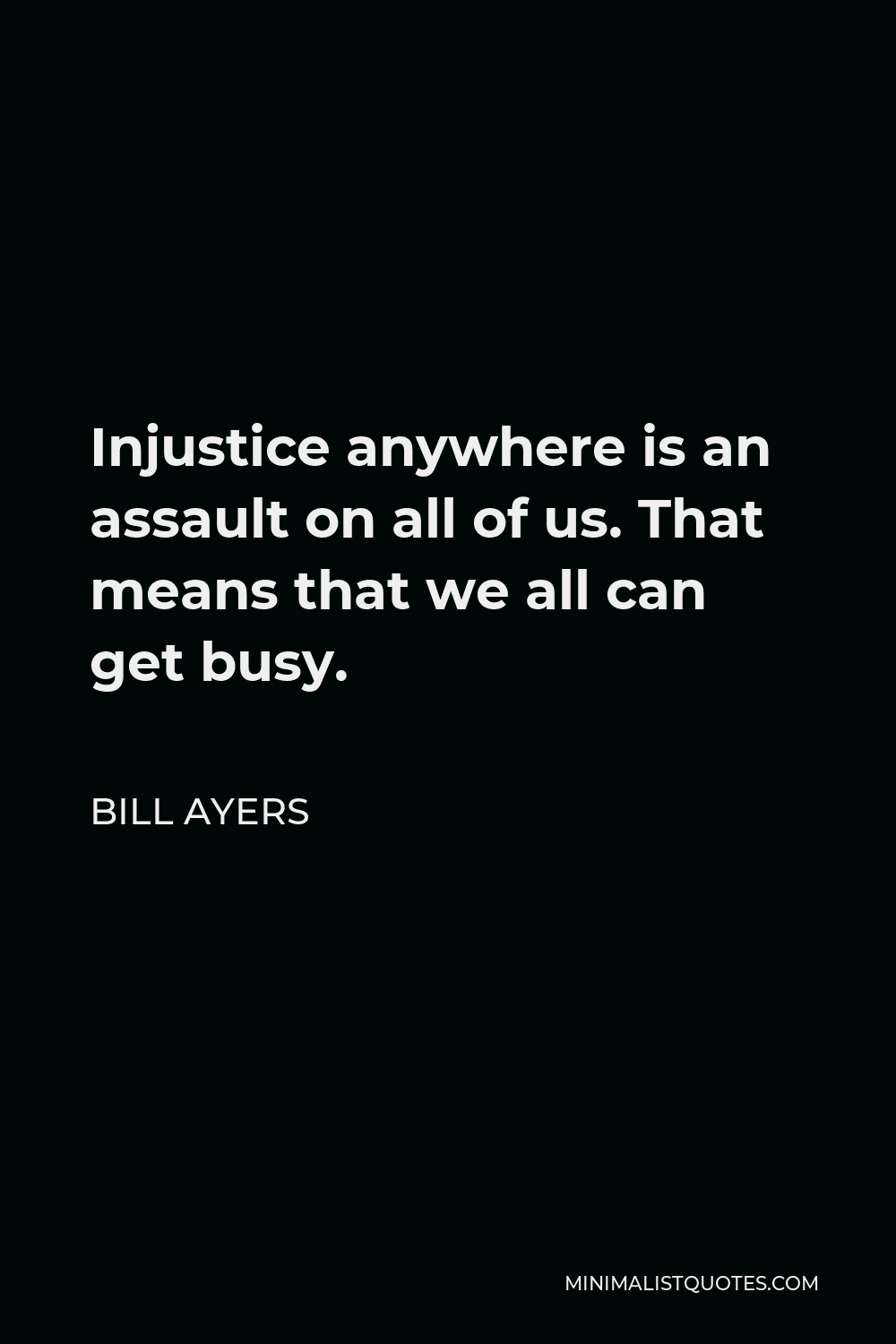
-





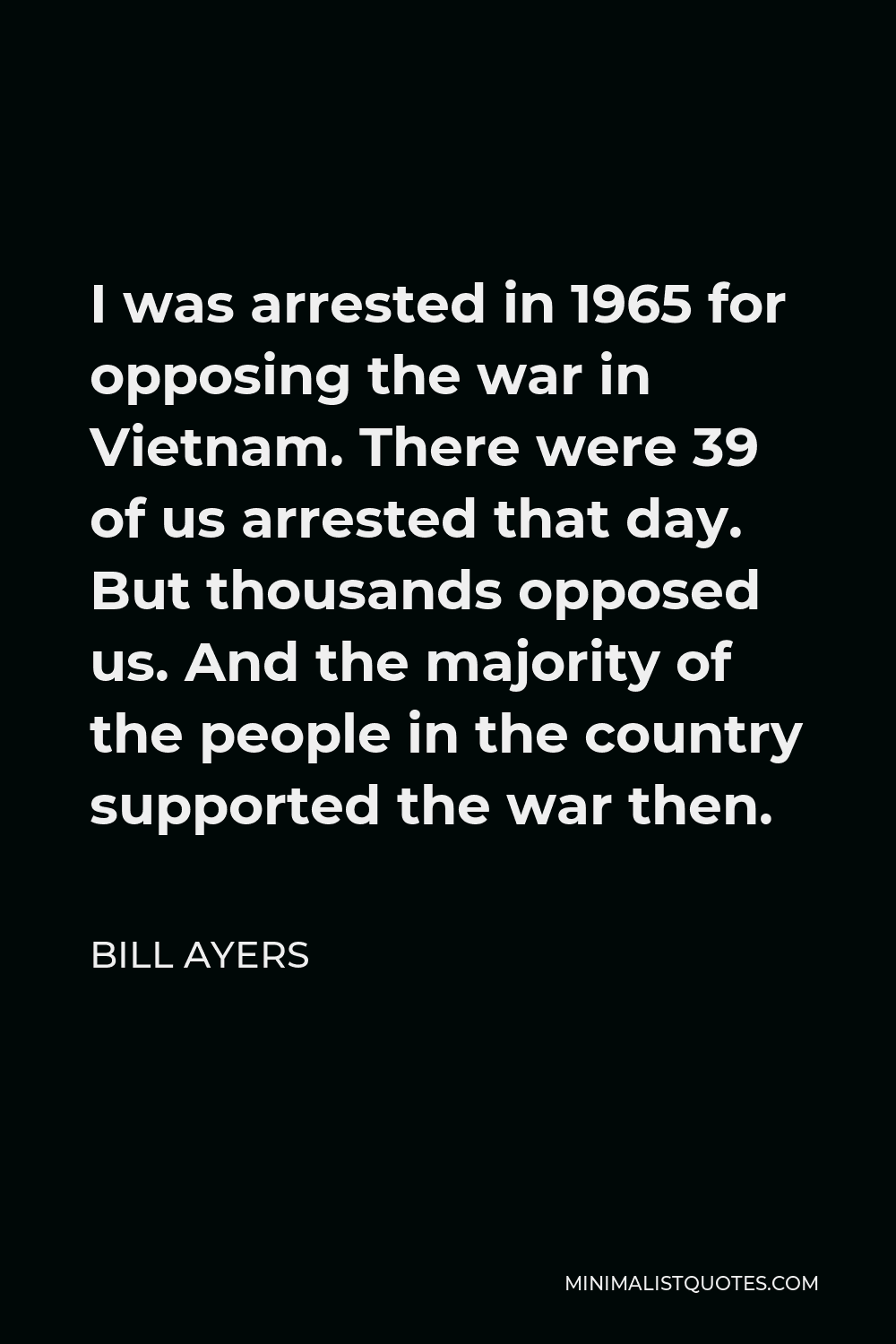
I was arrested in 1965 for opposing the war in Vietnam. There were 39 of us arrested that day. But thousands opposed us. And the majority of the people in the country supported the war then.
BILL AYERS -





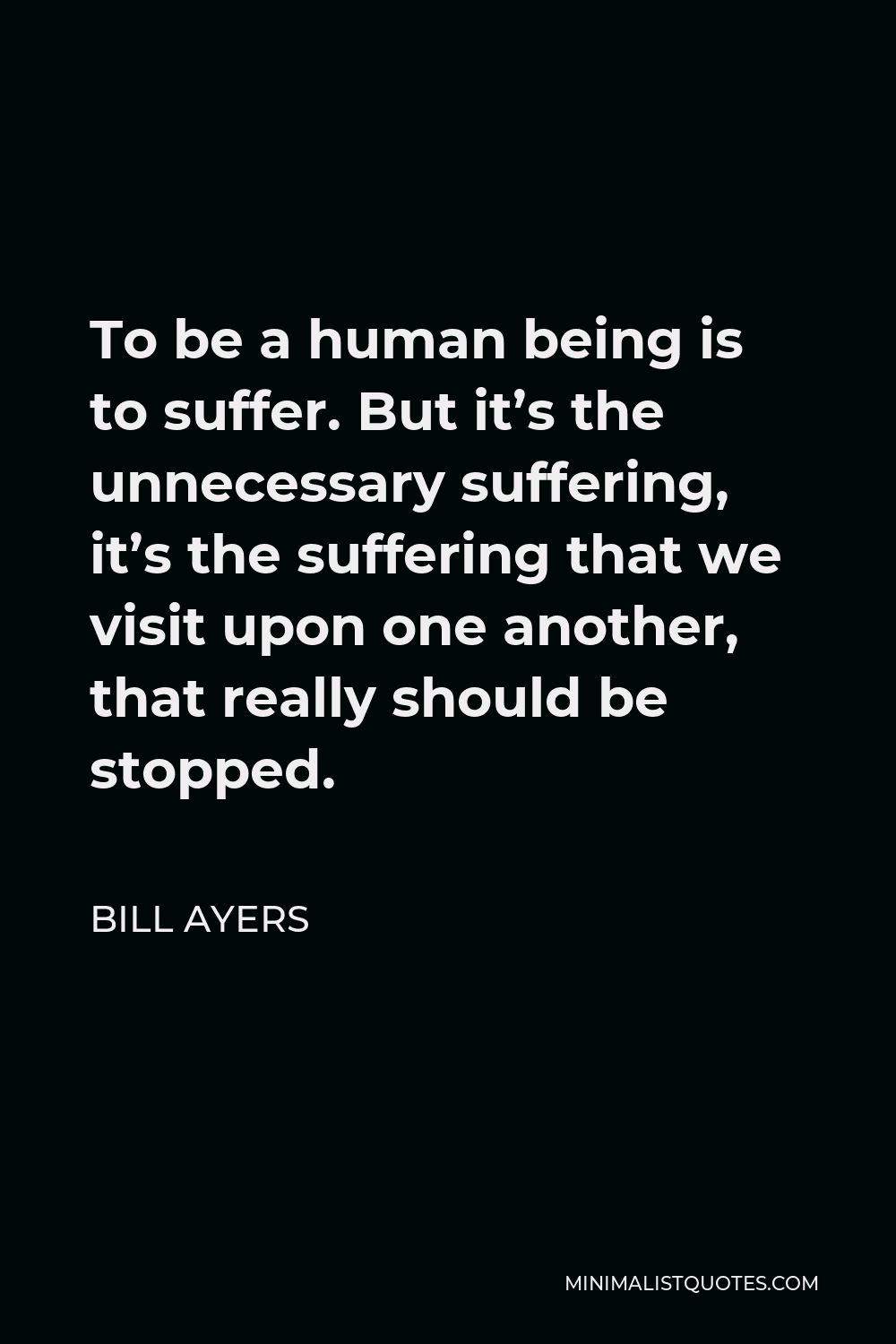
To be a human being is to suffer. But it’s the unnecessary suffering, it’s the suffering that we visit upon one another, that really should be stopped.
BILL AYERS -





![Bill Ayers Quote - [Students for a Democratic Society] was on many campuses and it was a powerful organization. It was founded by Tom Hayden, who passed away very recently.](https://minimalistquotes.com/images/students-for-a-democratic-society-was-on-many-camp.jpg)
[Students for a Democratic Society] was on many campuses and it was a powerful organization. It was founded by Tom Hayden, who passed away very recently.
BILL AYERS -





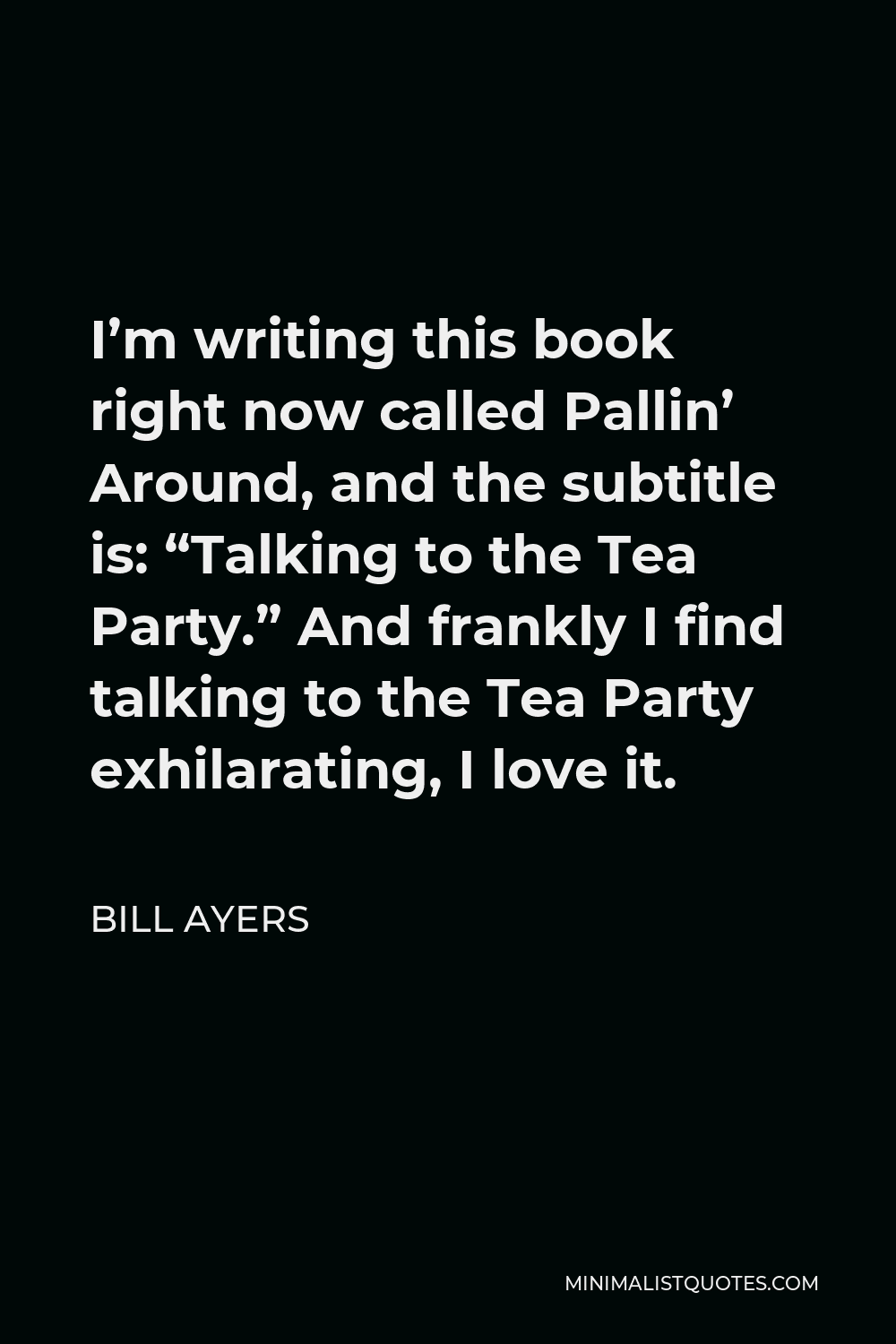
I’m writing this book right now called Pallin’ Around, and the subtitle is: “Talking to the Tea Party.” And frankly I find talking to the Tea Party exhilarating, I love it.
BILL AYERS -





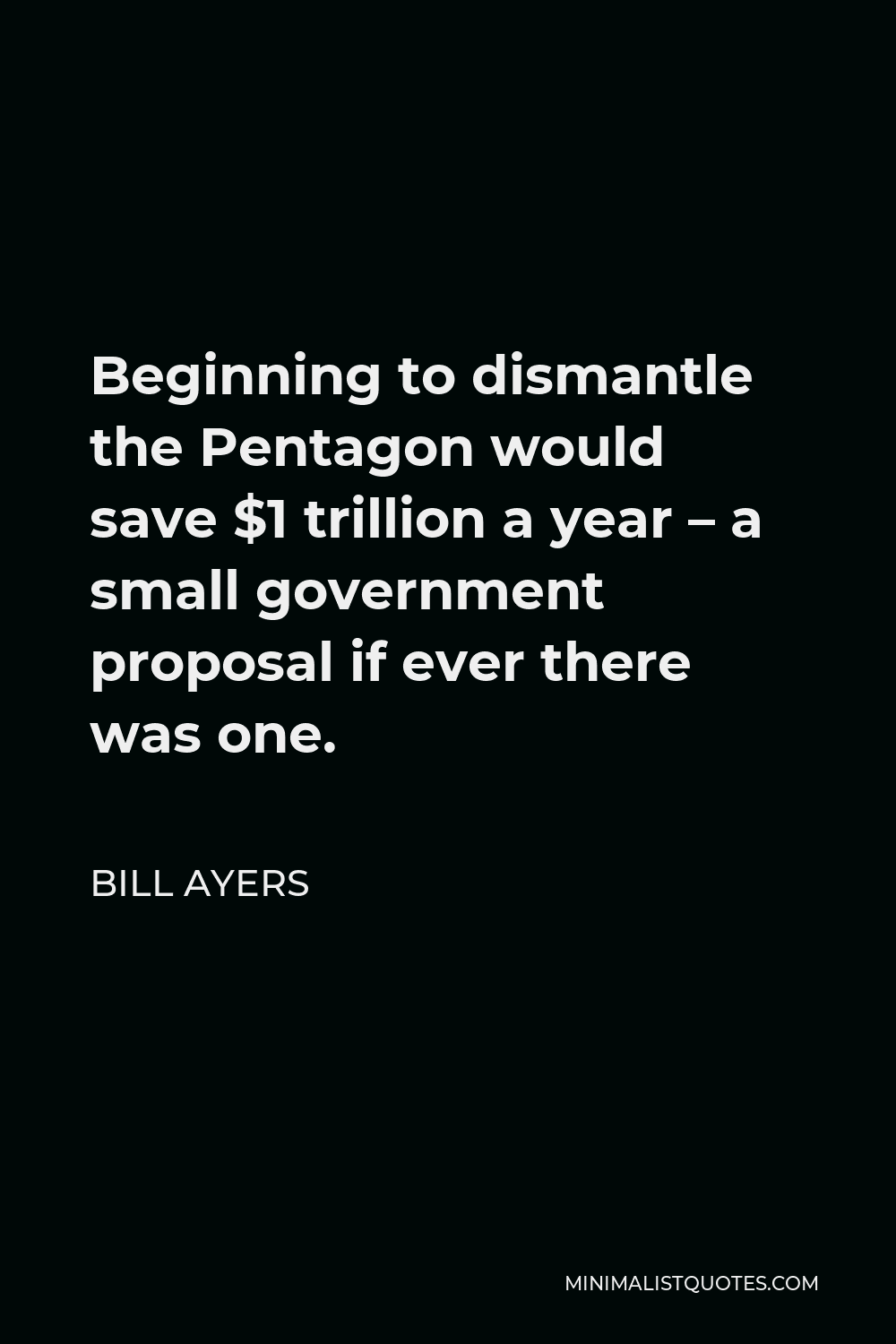
Beginning to dismantle the Pentagon would save $1 trillion a year – a small government proposal if ever there was one.
BILL AYERS -





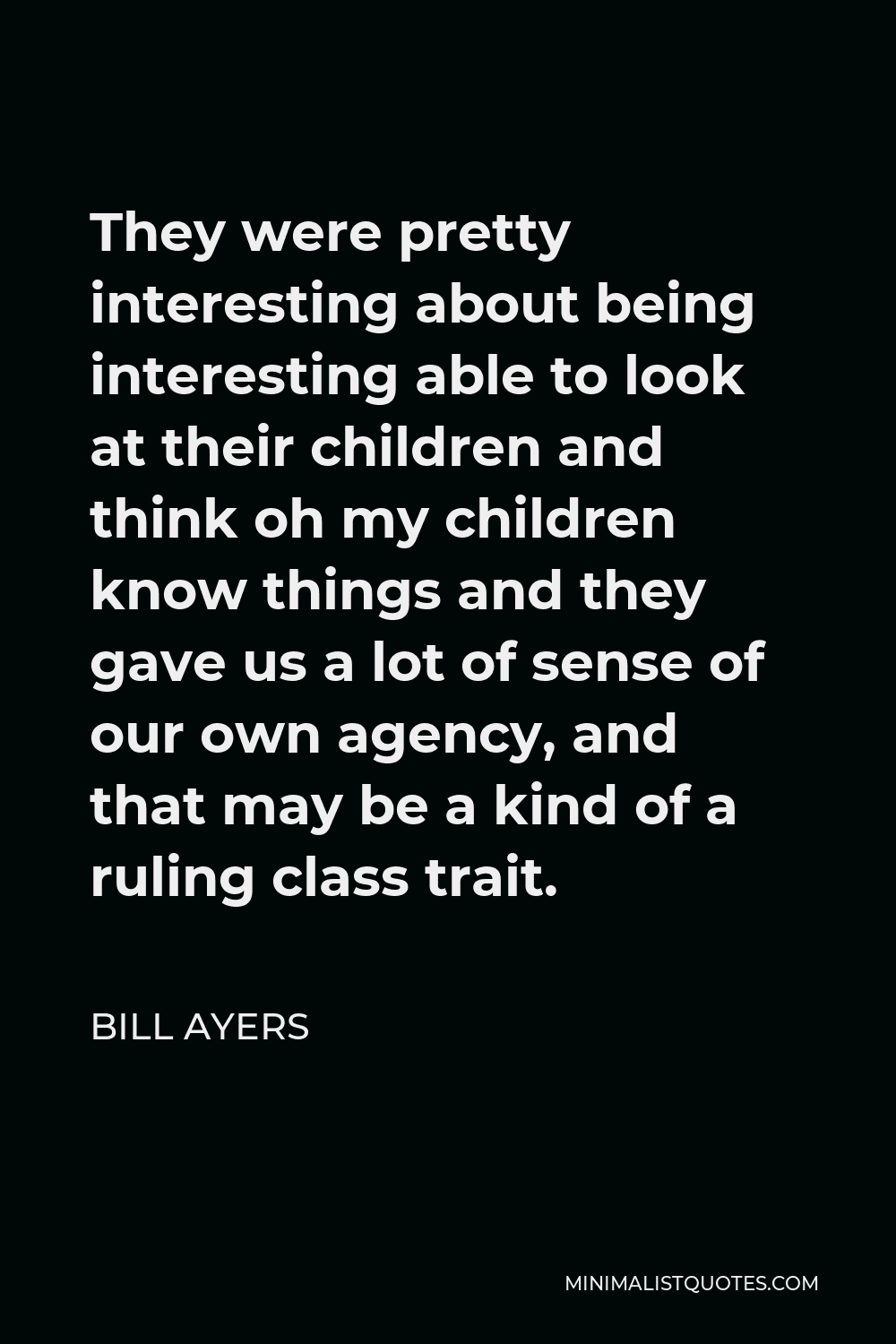
They were pretty interesting about being interesting able to look at their children and think oh my children know things and they gave us a lot of sense of our own agency, and that may be a kind of a ruling class trait.
BILL AYERS -





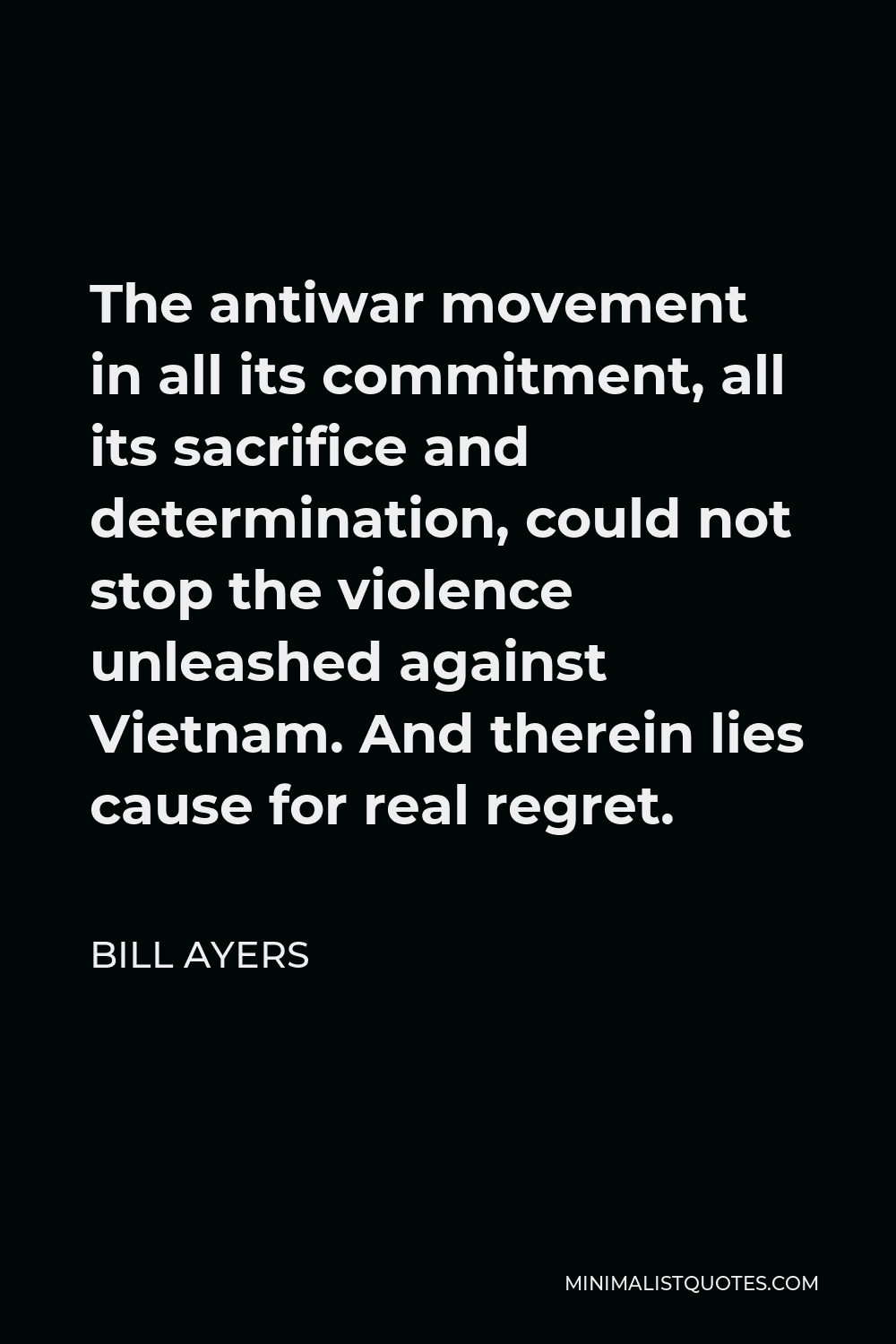
The antiwar movement in all its commitment, all its sacrifice and determination, could not stop the violence unleashed against Vietnam. And therein lies cause for real regret.
BILL AYERS -





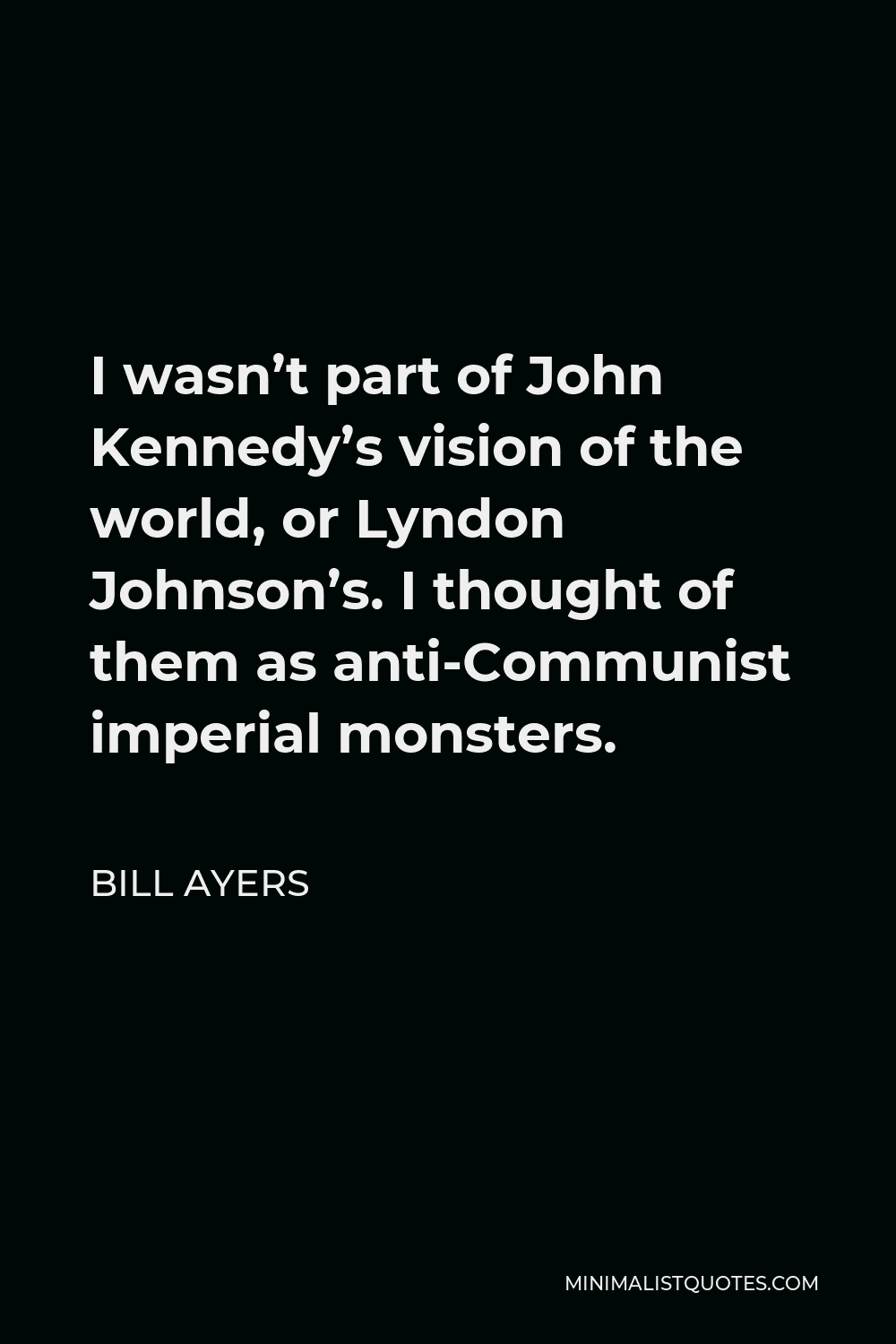
I wasn’t part of John Kennedy’s vision of the world, or Lyndon Johnson’s. I thought of them as anti-Communist imperial monsters.
BILL AYERS -





![Bill Ayers Quote - [Barack] Obama doesn’t disappoint me, because all during the campaign he said, I’m a pragmatic, middle-of-the-road, compromising politician.](https://minimalistquotes.com/images/barack-obama-doesnt-disappoint-me-because-all-duri.jpg)
[Barack] Obama doesn’t disappoint me, because all during the campaign he said, I’m a pragmatic, middle-of-the-road, compromising politician.
BILL AYERS -





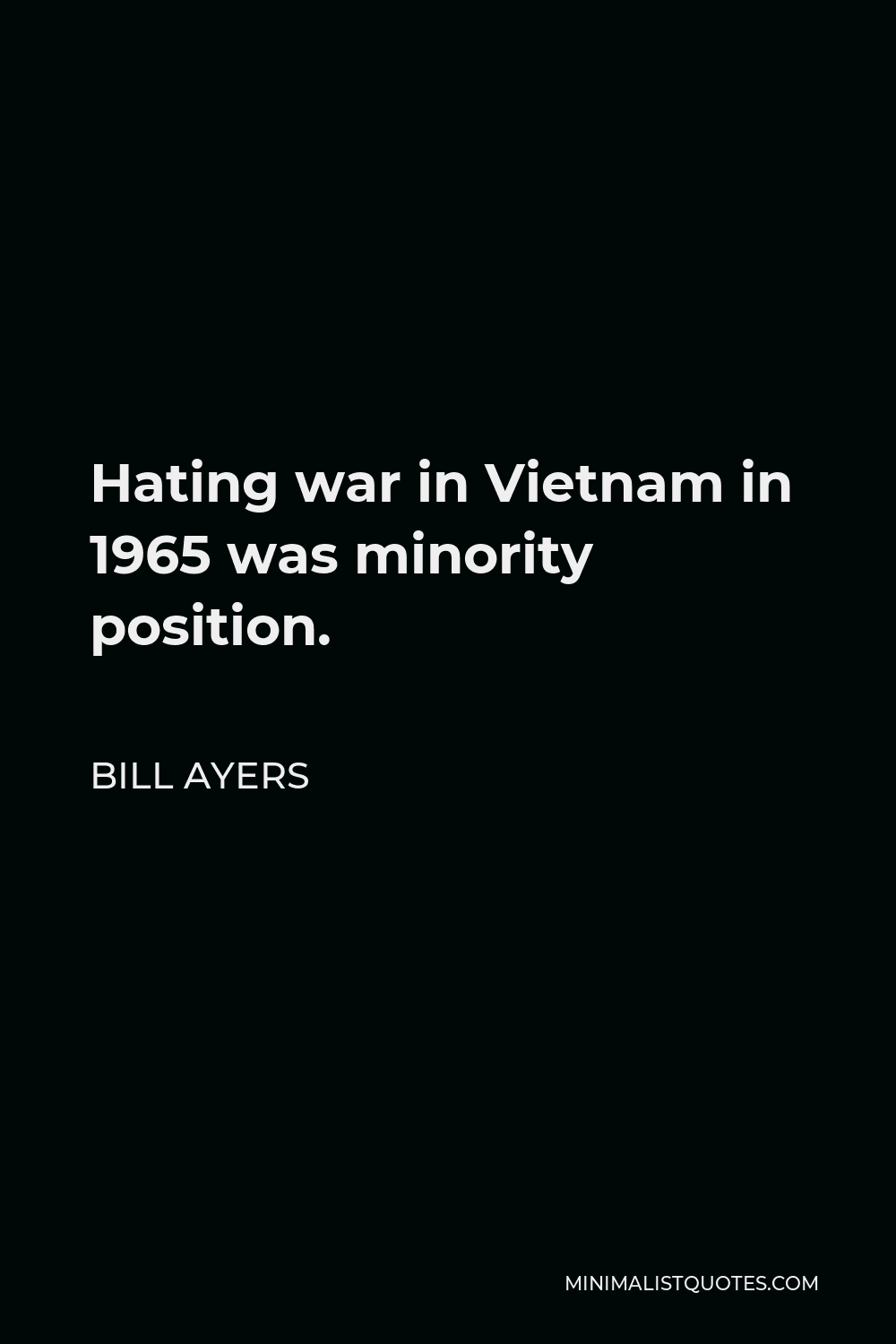
Hating war in Vietnam in 1965 was minority position.
BILL AYERS -





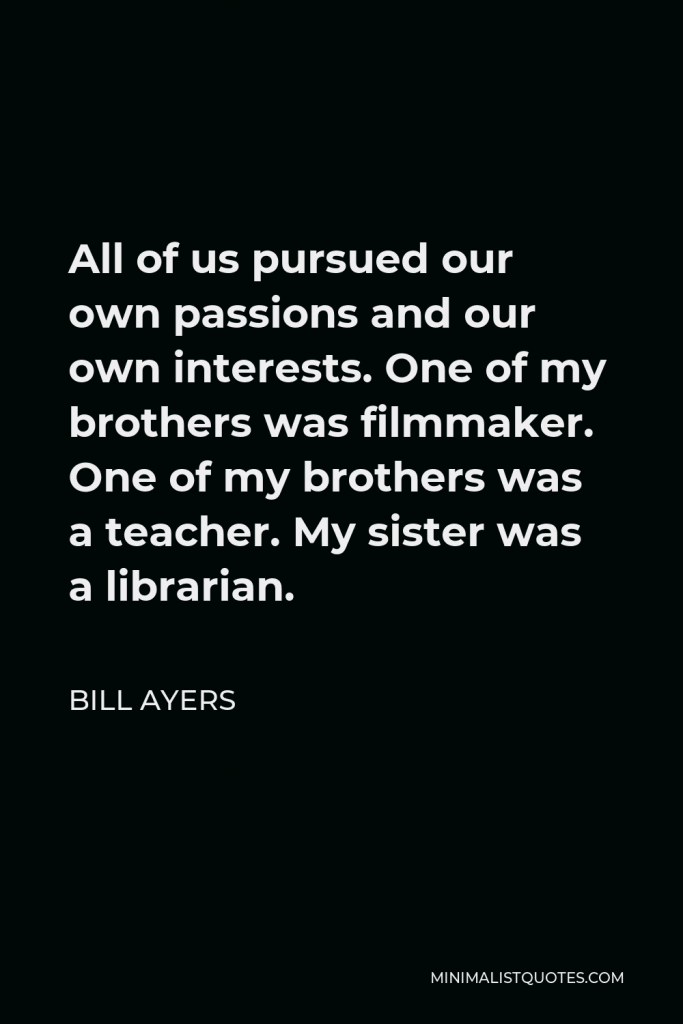

All of us pursued our own passions and our own interests. One of my brothers was filmmaker. One of my brothers was a teacher. My sister was a librarian.
BILL AYERS -





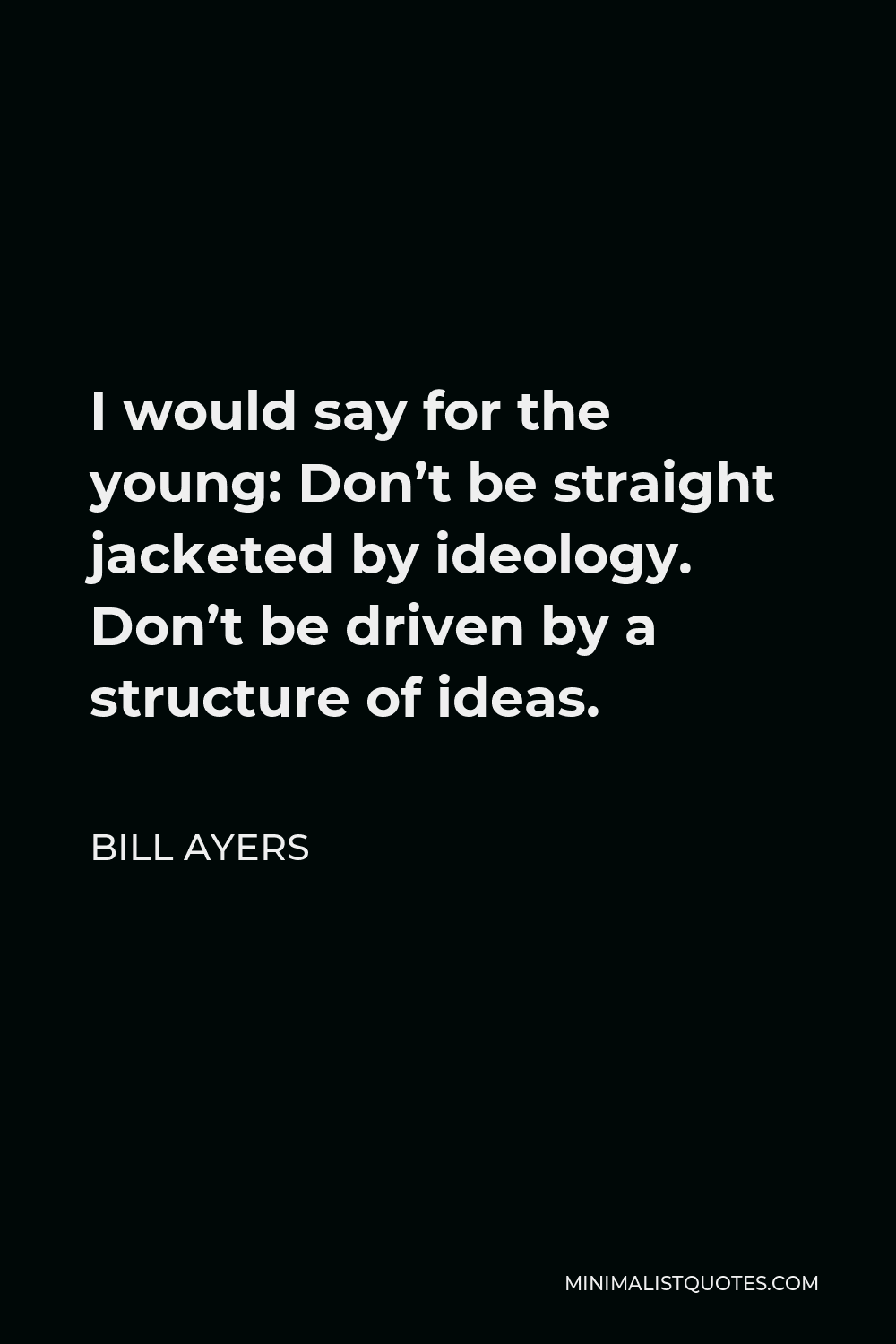
I would say for the young: Don’t be straight jacketed by ideology. Don’t be driven by a structure of ideas.
BILL AYERS -





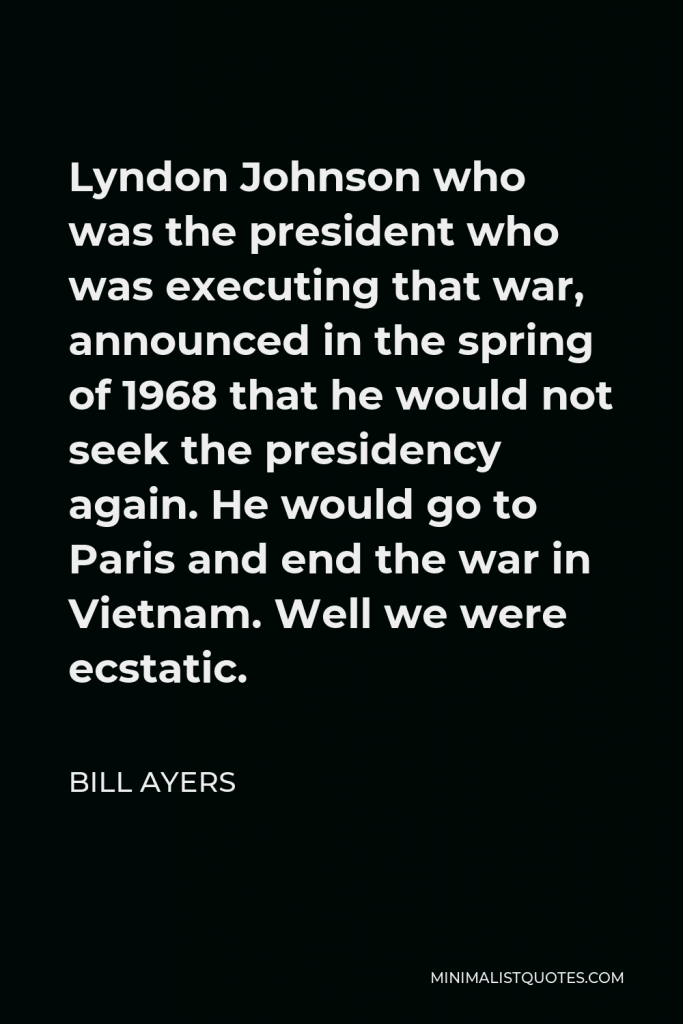

Lyndon Johnson who was the president who was executing that war, announced in the spring of 1968 that he would not seek the presidency again. He would go to Paris and end the war in Vietnam. Well we were ecstatic.
BILL AYERS -





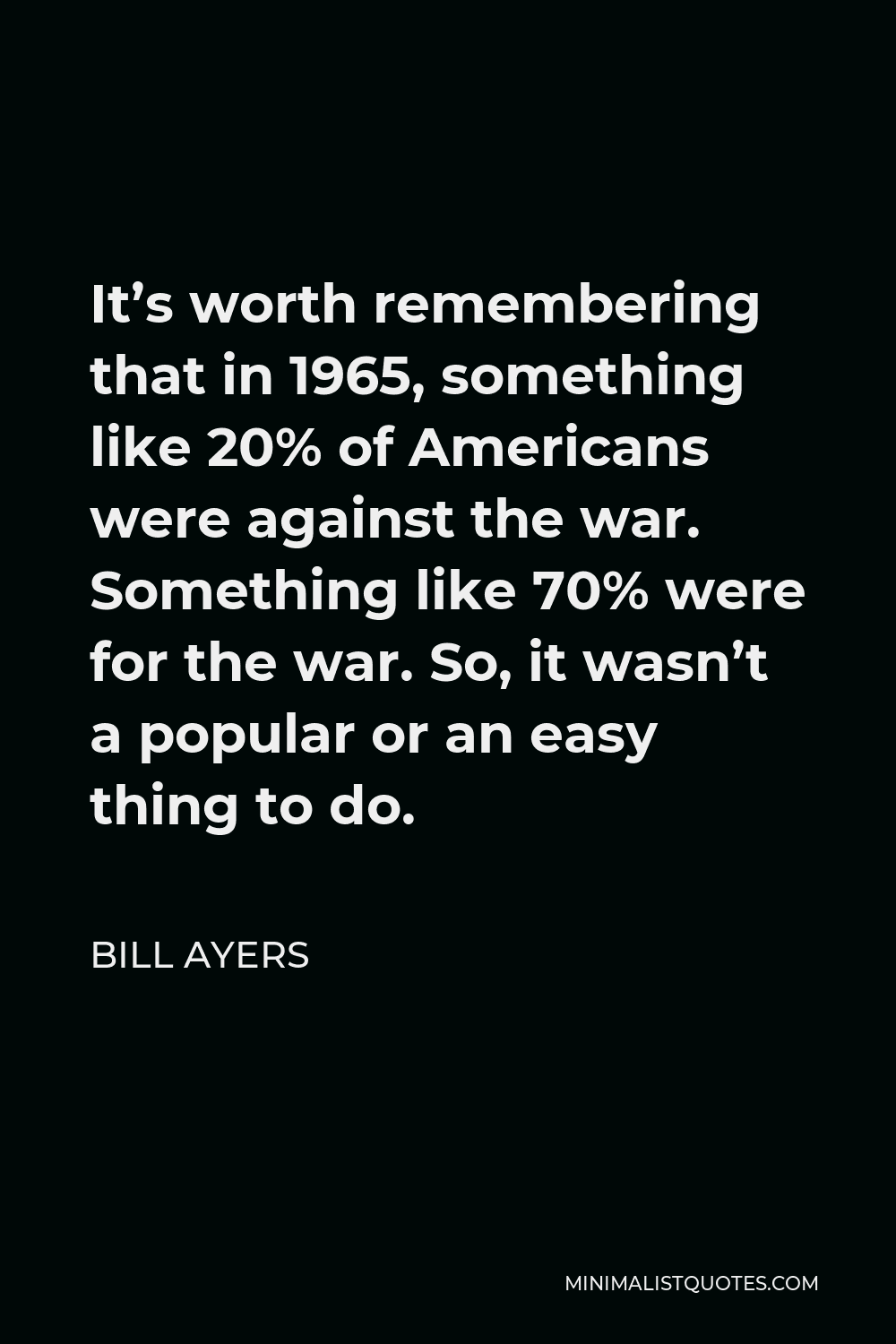
It’s worth remembering that in 1965, something like 20% of Americans were against the war. Something like 70% were for the war. So, it wasn’t a popular or an easy thing to do.
BILL AYERS -





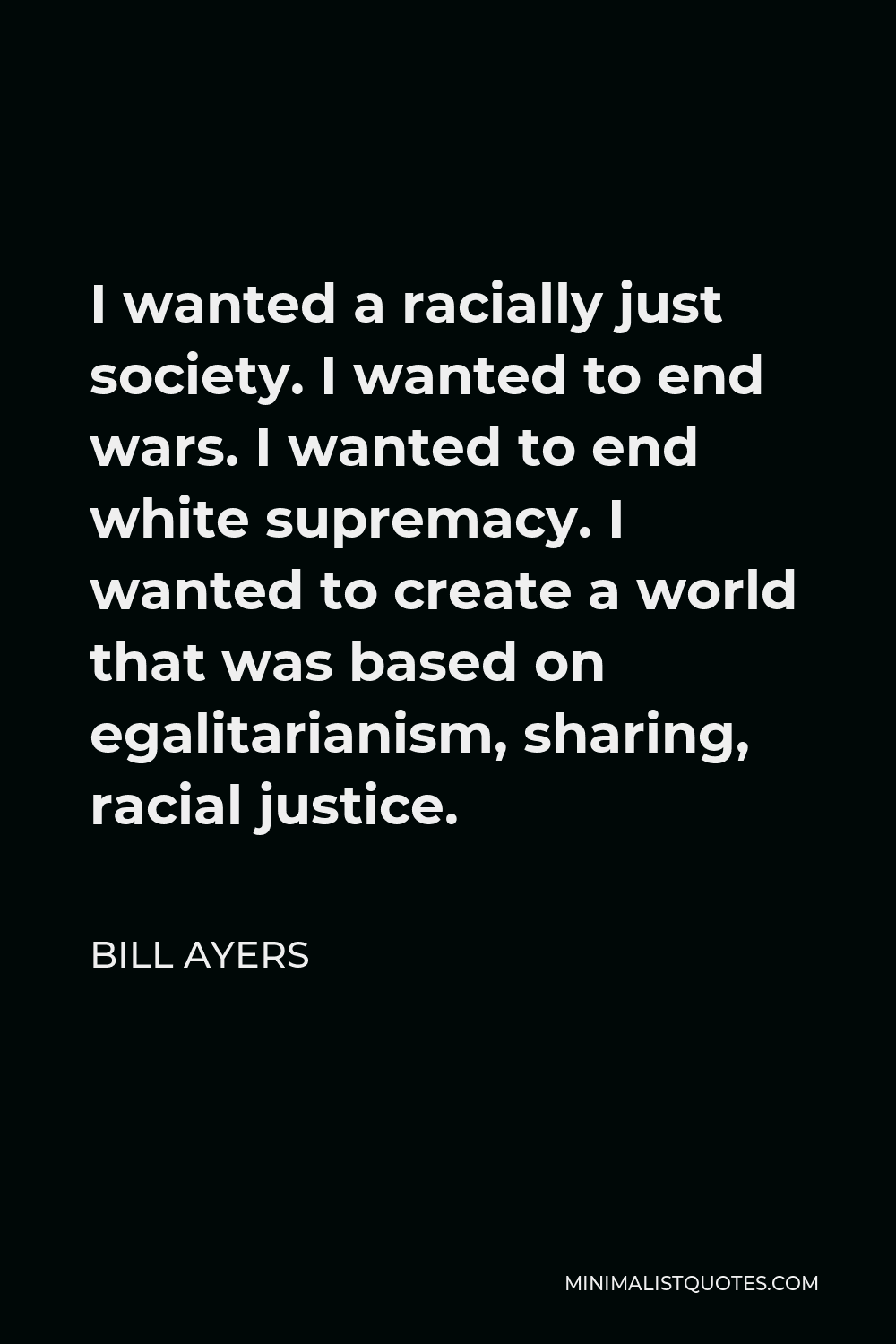
I wanted a racially just society. I wanted to end wars. I wanted to end white supremacy. I wanted to create a world that was based on egalitarianism, sharing, racial justice.
BILL AYERS
